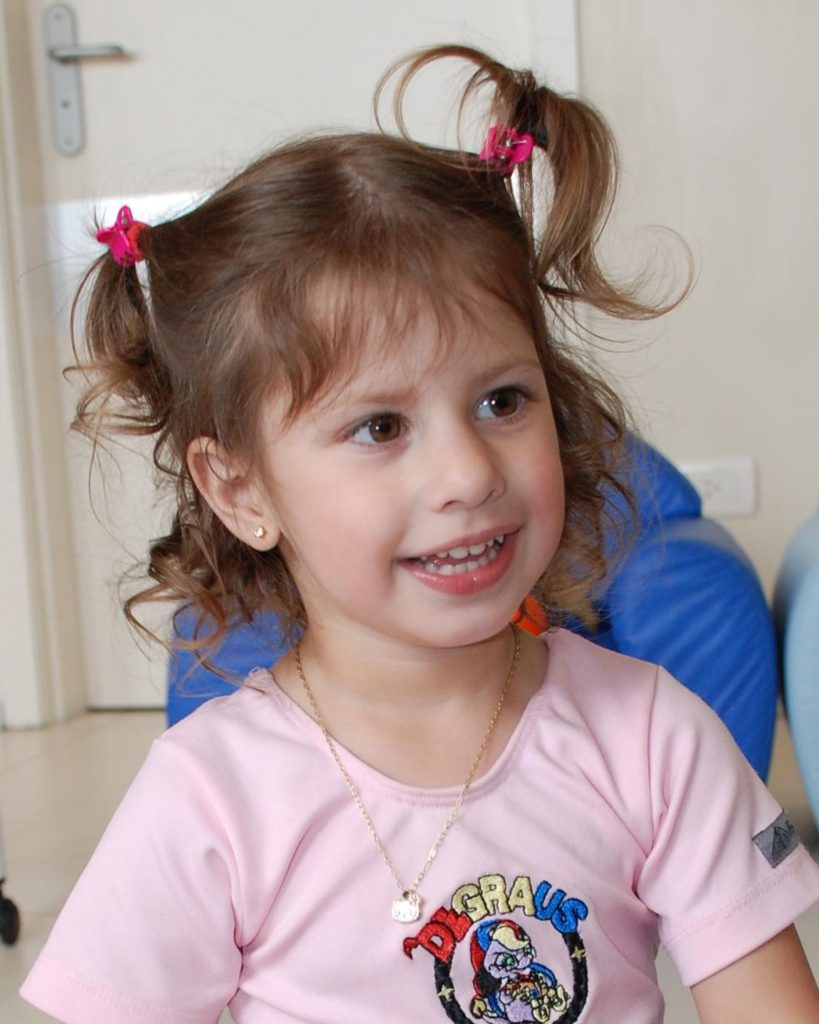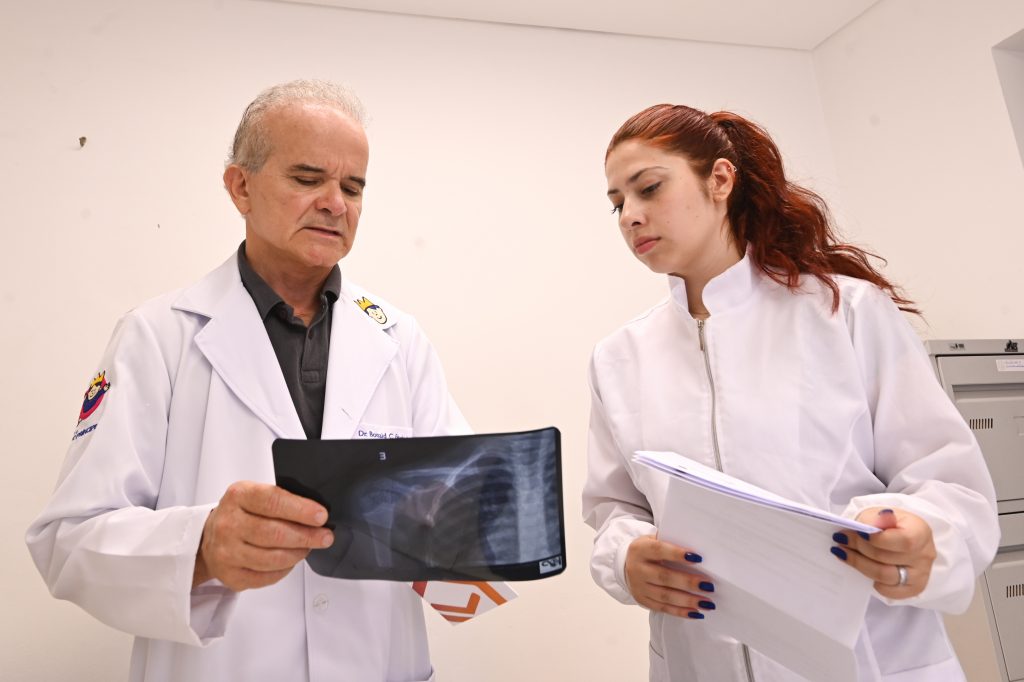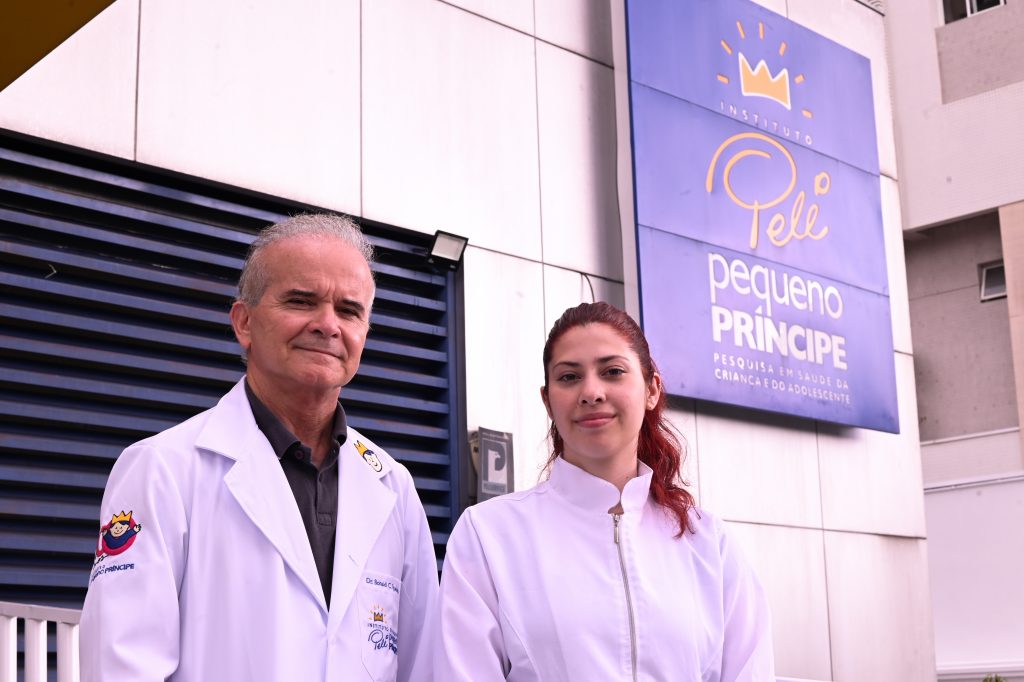From patient to researcher: meet Maria Eduarda’s story
At birth, she participated in a study that discovered her genetic predisposition to adrenocortical tumor; she overcame the disease in Early Childhood and now joins the research team to help support hundreds of families with the same predisposition, along with new findings from comparative studies between families
Maria Eduarda Woinarovicz was just a few hours old when a genetic test done in the maternity ward revealed the TP53 p.R337H mutation. This genetic change significantly increases the risk of developing adrenocortical tumor (ACT) in early childhood. This cancer has an incidence about 20 times higher in Paraná compared to the rest of the world.

The early discovery of Maria Eduarda’s mutation was made through a neonatal screening project for this hereditary mutation developed by the Pelé Pequeno Príncipe Research Institute since 2006, under the leadership of physician Bonald Cavalcante de Figueiredo, the Institute’s scientific director.
At three and a half years old, Maria Eduarda’s mother, Andréia Woinarovicz, noticed unusual signs in her daughter’s body, such as excessive hair growth. After seeking medical help, she was diagnosed with ACT. Thanks to the early diagnosis, Maria Eduarda was able to undergo surgery to remove the tumor, which weighed less than 25 grams, in time to cure her. The early diagnosis saved her life.
Now 18 years old, Maria Eduarda is studying Psychology, and her life is once again intertwined with scientific research. In late 2024, she received a CNPq (Brazilian National Council for Scientific and Technological Development) scientific initiation scholarship and will join Bonald Cavalcante de Figueiredo’s team to work on a research project that holds even more personal significance for her: the new edition of the neonatal screening for this type of cancer, now expanded, from the study that allowed her early diagnosis.

Figueiredo’s team has been studying mutations linked to adrenocortical cancer since 1997. Over the years, researchers have discovered other genetic mutations – beyond the one Maria Eduarda had – that are linked to a higher likelihood of developing the tumor. Therefore, the new project aims to understand how these new mutations (seven total inherited from one parent) correlate and increase the predisposition to develop ACT. The goal is to develop a more precise diagnostic panel for early ACT detection, expanding scientific knowledge of the disease and saving even more lives like Maria Eduarda’s. It is believed that children inheriting a greater number of these mutations may have a higher chance of developing adrenocortical tumor, and if this hypothesis is confirmed, they will need more attention from oncological surveillance against this cancer.
“Every genetic discovery requires large-scale validation when it comes to population genetics related to disease. We discovered six other mutations inherited from one parent in our families with the R337H mutation, and we will test them to find which mutation combinations increase the predisposition to the disease,” explained the scientist. He also highlighted that these combinations were only studied in adrenocortical tumor but may also relate to other types of cancer.
The project is receiving investments through the Brazilian National Program to Support Oncology Care, in an amount of US$ 1.48 million.


